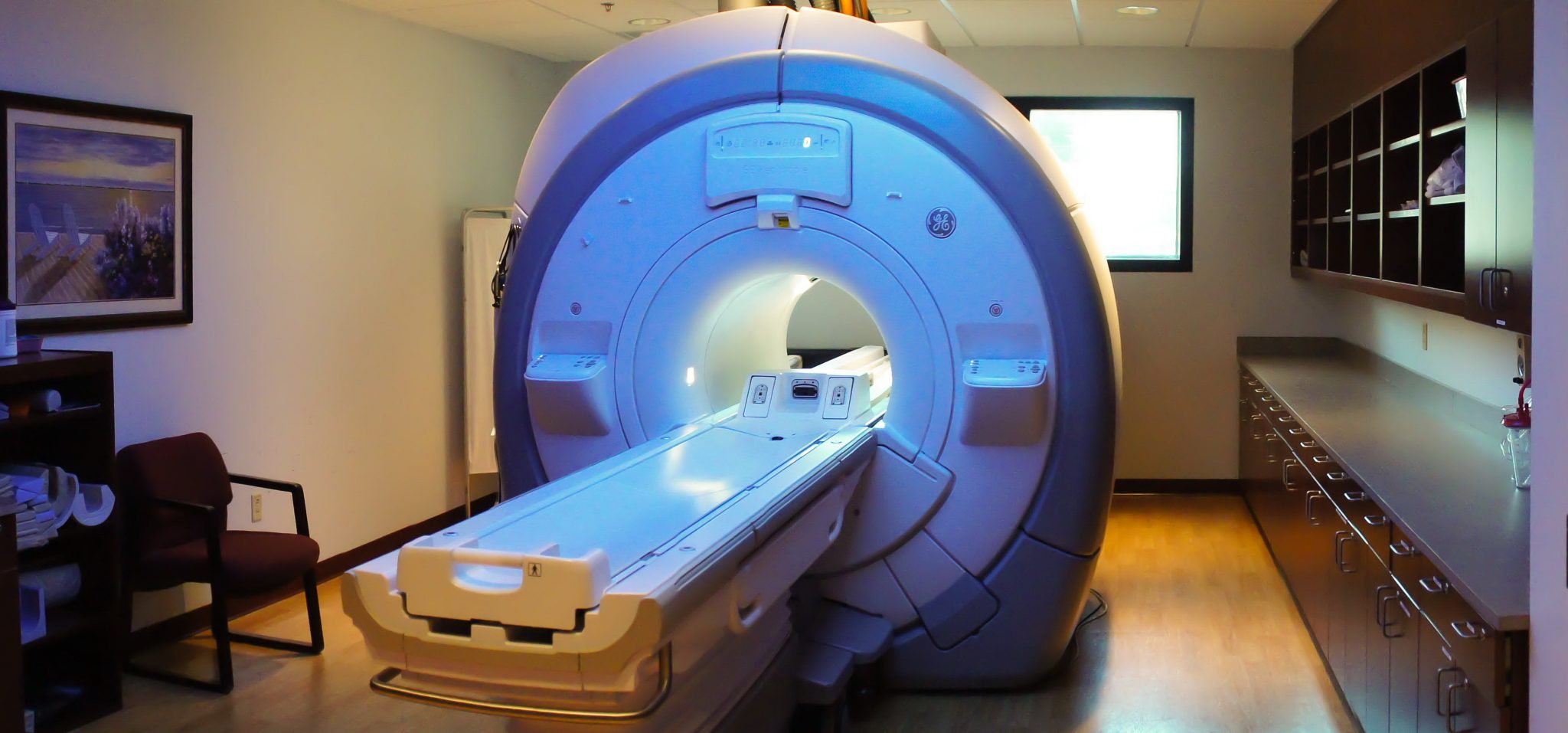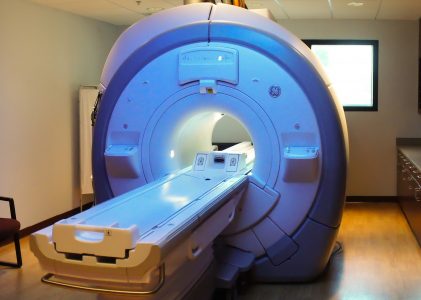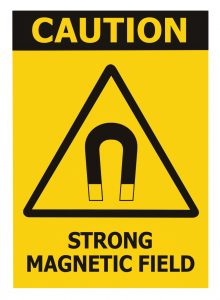
Each year, the month of July features MRI Safety Week to raise awareness and bring focus to all MR technologists and radiologists on safe MR imaging practices. Greater Waterbury Imaging Center, GWIC, takes very seriously all concerns and possible threats that may arise from patients who encounter the strong magnet used during an MRI.
GWIC focuses on providing a safe MRI experience with policies and procedures that are strictly followed to ensure the safety of all patients. We have earned the confidence and trust of the community and physicians for providing safe and exceptional MRI services. GWIC offers safe MRI services for the body, breast, cardiac, neurological, ophthalmic, and orthopedic imaging.
What is an MRI Exam?
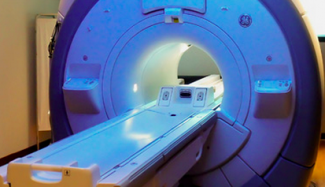 MRI stands for magnetic resonance imaging and is used to gather detailed images of tissues and organs within the body without using X-rays. An MRI utilizes radio waves and magnetic fields to generate images onto a computer screen. These images display injuries, abnormal conditions, and disease processes, which are reviewed by a Radiologist and assist in the treatment of a patient.
MRI stands for magnetic resonance imaging and is used to gather detailed images of tissues and organs within the body without using X-rays. An MRI utilizes radio waves and magnetic fields to generate images onto a computer screen. These images display injuries, abnormal conditions, and disease processes, which are reviewed by a Radiologist and assist in the treatment of a patient.
For patients who have never had an MRI, it may seem intimidating to undergo an MR imaging exam. It is important to note that an MRI procedure is completely painless, although the machine itself does make loud noises, such as knocking or tapping, during the process. Patients are given earplugs or headphones to counter the loud noises the machine makes during the MRI process, which some may find bothersome. The patient can communicate with the MRI technologist during the exam through a two-way intercom system.
For patients that experience claustrophobia, GWIC offers a non-claustrophobic MRI scanner that is wider to help ease concerns with claustrophobia. Typically, an MRI exam takes 30-60 minutes, but your MRI technologist will go over with you what to expect and how long you should expect to wait for your results.
MRI for Patients with Pacemakers
Patients that have pacemakers or cardiovascular implanted electronic devices (CIED) have been increasing in large part due to an aging society and expanded indications for their use. It is estimated that 75% of patients with a pacemaker or implantable cardiac electronic device will require an MRI at some point during their lifetime. An MRI has been contraindicated in the past for these patients due to concerns regarding the radiofrequency and powerful magnetic fields utilized during an MRI that could possibly damage the device components, deliver inappropriate shocks, trigger rapid heart pacing or inhibit proper function.
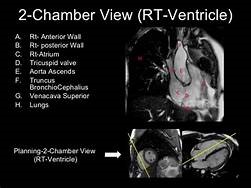 There are protocols for patients with pacemakers as the FDA approved MRI conditional pacemakers in 2011 that are considered safe for use during an MR exam. There is information available for patients on getting an MRI with a cardiac device, and the American College of Radiology (ACR) recognizes that performing an MRI on a patient with a pacemaker should be conducted only when deemed medically necessary and properly triaged and is never considered routine. Patient needs versus risks are analyzed on a case-by-case basis, so it is important to collaborate with your medical team to determine the best and safest course of action.
There are protocols for patients with pacemakers as the FDA approved MRI conditional pacemakers in 2011 that are considered safe for use during an MR exam. There is information available for patients on getting an MRI with a cardiac device, and the American College of Radiology (ACR) recognizes that performing an MRI on a patient with a pacemaker should be conducted only when deemed medically necessary and properly triaged and is never considered routine. Patient needs versus risks are analyzed on a case-by-case basis, so it is important to collaborate with your medical team to determine the best and safest course of action.
GWIC offers Cardiac MRI services and more information on the benefits of a cardiac MRI.
How to Prepare for Your MRI Procedure
 Knowing what to expect will help you to prepare for your MRI exam. When arriving for your MRI exam at GWIC, you will be asked to answer some questions and follow certain safety protocols. Safety screening protocols include asking about the possibility of an injury with a metal object or the possibility of metal or a foreign body in the eye. Other concerns include patient diseases like kidney disease, hypertension, or diabetes. Your MRI technologists need to know if you have had any surgically implanted or removable medical devices.
Knowing what to expect will help you to prepare for your MRI exam. When arriving for your MRI exam at GWIC, you will be asked to answer some questions and follow certain safety protocols. Safety screening protocols include asking about the possibility of an injury with a metal object or the possibility of metal or a foreign body in the eye. Other concerns include patient diseases like kidney disease, hypertension, or diabetes. Your MRI technologists need to know if you have had any surgically implanted or removable medical devices.
Some questions you can expect before your exam include:
- If you have any artificial body parts or implants
- Any detachable body parts such as limbs, hearing aids, pumps, staples, etc.
- Allergic reactions to dyes
- Any mechanical devices such as stimulators or magnetic implants
- If you use dentures or partials
- If you have certain tattoos, such as eyeliner
Before your MRI exam, you will be asked to:
- Remove all jewelry, including body jewelry and watches
- Remove all hair clips or bobby pins
- Wear loose-fitting clothing
- Remove dentures, dental plates, or false teeth
- Remove hearing aids and take off eyeglasses
- Remove any magnetic cosmetics such as eyelashes
- Remove any clothing that may have metal
MRI technologists at GWIC follow a meticulous safety checklist such as this Safety Screening Form issued by the ACR along with our own inclusive safety checklist to cover all these safety concerns and more with you during your appointment. We have been following additional strict safety standards to keep patients and staff safe during the COVID-19 pandemic.
Having an MRI exam can be concerning for patients who do not know what to expect. GWIC staff always have the patient’s safety and comfort in mind and are committed to providing an exceptional MRI experience. Learn more about Preparing for Your MRI and what to expect during your appointment.
GWIC offers a team of experienced MRI technologists and radiologists with a commitment to patient’s health, safety, and comfort. As a comprehensive medical imaging center with expertise in MRI exams, our team can assist you with how to prepare and what to expect during your MRI. Contact us with any questions and to schedule your next MRI exam with confidence in safety.

